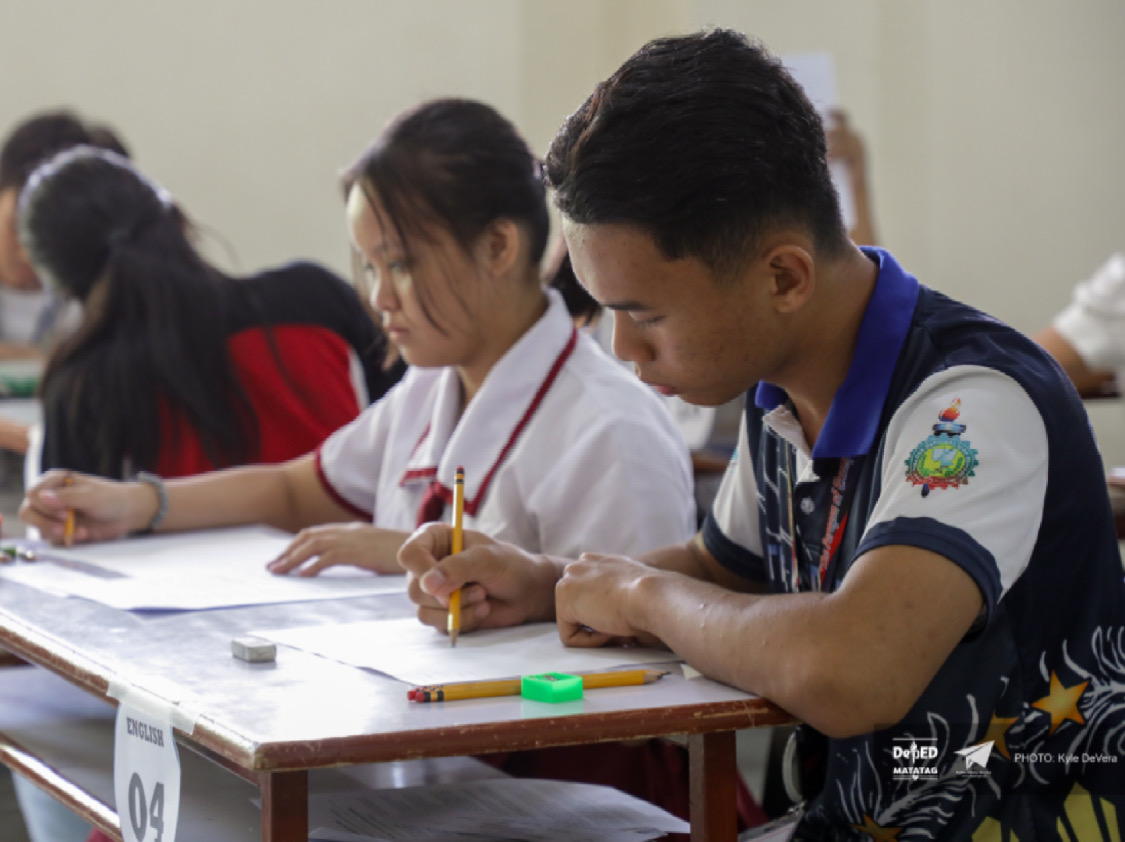DepEd strengthens commitment to literacy as FLEMMS results show gains, opportunities

SHARE
The Department of Education (DepEd) reaffirmed President Ferdinand R. Marcos Jr.’s commitment to improve literacy across the country as it welcomes the results of the 2024 Functional Literacy, Education, and Mass Media Survey (FLEMMS), conducted by the Philippine Statistics Authority (PSA).
“Reading to children improves their language, develops their cognitive skills, and allows them to appreciate learning. According to various studies, early high-quality education supports children’s physical and emotional development, which they need for school readiness,” President Marcos said during the Ceremonial Signing of the Joint Circular on the Establishment of Child Development Centers by the Local Government Units on Thursday.

Heeding the President’s directive, the Department is currently intensifying its Early Childhood Care and Development (ECCD) and National Reading Programs to uplift more learners toward full functional literacy.
The latest FLEMMS findings highlight that the Philippines continues to maintain a strong basic literacy rate of 93.1% among individuals aged 10 to 64 years old. This underscores the country’s success in ensuring that the vast majority of Filipinos can read, write, and compute—important foundational skills.
The survey also reports a functional literacy rate of 70.8%, demonstrating that seven out of ten Filipinos possess high-level comprehension skills to process and apply information effectively in daily life.
“These figures affirm our ongoing efforts to strengthen foundational education while also highlighting areas where we can further enhance our learners’ skills,” Education Secretary Sonny Angara said. “With a strong literacy base in place, we are poised to expand our programs to ensure that every Filipino gains the ability to think critically and engage meaningfully in society.”
The survey also reveals encouraging literacy trends across different regions of the country. The Cordillera Administrative Region (CAR) leads in functional literacy at 81.2% while Central Luzon recorded the highest basic literacy rate at 92.8%, underscoring the effectiveness of regional education initiatives.
DepEd commits to improving literacy through curriculum enhancement and targeted teaching strategies. While the high basic literacy rate indicates progress in foundational skills, the lower functional literacy rate highlights the need for deeper comprehension and critical thinking in the curriculum.
The survey identified variations in functional literacy across regions, highlighting the need for targeted interventions. Regional disparities in literacy also suggest that differentiated instruction and localized curriculum adaptations are necessary to address varying learner needs.
Moving forward, DepEd will emphasize collaboration among stakeholders which is essential in ensuring that literacy initiatives are both inclusive and sustainable.
“We are continuously innovating our approaches to ensure that literacy education remains dynamic, engaging, and accessible to all,” the DepEd chief added. “By integrating comprehension and analytical thinking into our programs, we aim to produce learners who are not only literate but also highly competent in navigating real-world challenges.”
DepEd recognizes that fostering literacy is a shared responsibility and encourages collaboration between government agencies, local communities, private institutions, and families.
“We celebrate these literacy milestones while also committing to continuous improvement. Functional literacy is a powerful tool for national development, and we invite all sectors to join us in this mission,” Angara said.
According to PSA, FLEMMS 2024 covered 177,656 eligible sample households and 572,910 individuals 5 years old and over.
*All Photos from Deped
RELATED ARTICLES

Experience Shanghai chic redefined on the historic riverfront Bund

The Peninsula Shanghai Exclusive Offers









